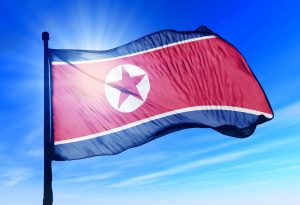Russia vetoed a U.N. resolution Thursday in a move that effectively abolishes the monitoring by United Nations experts of sanctions against North Korea over its nuclear program, though the sanctions themselves remain in place.
Russia’s turnaround on the monitoring – which it repeatedly agreed to in the past – prompted Western accusations that Moscow was acting to shield its weapons purchases from North Korea for use in its war against Ukraine, in violation of the U.N. sanctions.
The vote in the 15-member council was 13 in favor, Russia against, and China abstaining. The Security Council resolution would have extended the mandate of the panel of experts for a year, but Russia’s veto will halt its operation. The U.N. sanctions against North Korea still remain in force.
Russia’s U.N. Ambassador Vassily Nebenzia told the council before the vote that Western nations are trying to “strangle” North Korea and that sanctions have proven “irrelevant” and “detached from reality” in reining in the country’s nuclear program.
U.S. Deputy Ambassador Robert Wood told the council after the vote that Russia’s veto was nothing more than “the attempt by one council member to silence the independent objective investigations” into North Korea’s sanctions violations.
He said Russia acted because “the panel began reporting in the last year on Russia’s blatant violations of the U.N. Security Council resolutions.”
White House national security spokesman John Kirby condemned Russia’s veto as a “reckless action” that undermines sanctions imposed on North Korea, while warning against the deepening cooperation between North Korea and Russia, particularly as North Korea continues to supply Russia with weapons as it wages its war in Ukraine.
“The international community should resolutely uphold the global nonproliferation regime and support the people of Ukraine as they defend their freedom and independence against Russia’s brutal aggression,” Kirby told reporters.
Britain’s U.N. Ambassador Barbara Woodward said Russia’s veto follows arms deals between Russia and North Korea in violation of U.N. sanctions, including “the transfer of ballistic missiles, which Russia has then used in its illegal invasion of Ukraine since the early part of this year.”
While Russia was alone in vetoing the proposal, China also raised concerns about the resolution. China’s U.N. Ambassador Geng Shuang said in a statement following the vote that “China supports the comprehensive and accurate implementation of the Security Council sanctions against North Korea,” and supports Panel of Experts and the DPRK Sanctions Committee “to independently, objectively and fairly perform their duties and promote the implementation of sanctions.”
“At the same time,” he added, “we have always maintained that sanctions are not an end, but a means.” Geng argued that sanctions have failed to achieve the stated goals and urged the Security Council to consider a China-Russia draft resolution that would reverse the sanctions.
Geng also said China had backed a Russian counterproposal that would have renewed the Panel of Experts’ mandate while setting “a time limit for sanctions against North Korea.” He explained that China had abstained from the current vote because these “suggestions for improving the work of the panel” were not adopted, but added there is “still time to negotiate.”
The Security Council imposed sanctions after North Korea’s first nuclear test explosion in 2006 and tightened them over the years in a total of 10 resolutions seeking – so far unsuccessfully – to cut funds and curb its nuclear and ballistic missile programs.
The last sanctions resolution was adopted by the council in December 2017. China and Russia vetoed a U.S.-sponsored resolution in May 2022 that would have imposed new sanctions over a spate of intercontinental ballistic missile launches.
The Security Council established a committee to monitor sanctions and the mandate for its panel of experts to investigate violations had been renewed for 14 years. The current mandate, which was unanimously approved by the Security Council in March 2023, will expire on April 30, 2024.
































